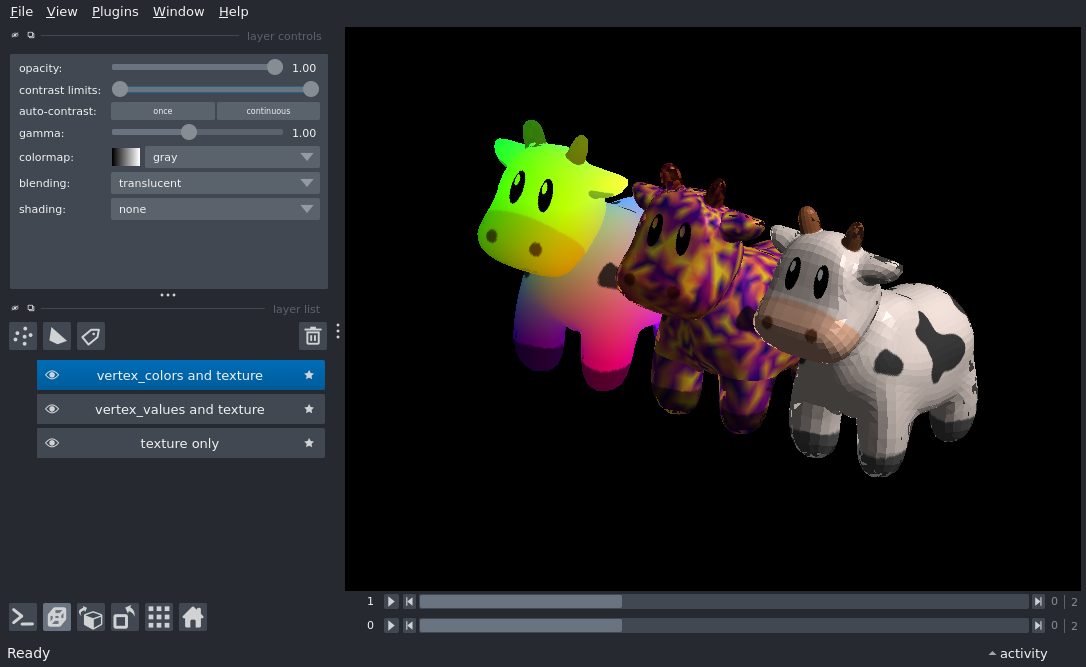Note
Go to the end to download the full example as a Python script or as a Jupyter notebook..
Surface with texture and vertex_colors#
Display a 3D surface with both texture and color maps.
- This example demonstrates how surfaces may be colored by:
setting vertex_values, which colors the surface with the selected colormap
setting vertex_colors, which replaces/overrides any color from vertex_values
setting both texture and texcoords, which blends a the value from a texture (image) with the underlying color from vertex_values or vertex_colors. Blending is achieved by multiplying the texture color by the underlying color - an underlying value of “white” will result in the unaltered texture color.

Downloading data from https://raw.githubusercontent.com/vispy/demo-data/main/spot/spot.obj.gz (106 kB)
[........................ ] 60.53854 | downloading
[........................................] 100.00000 / downloading
File saved as /home/runner/.vispy/data/spot/spot.obj.gz.
Downloading data from https://raw.githubusercontent.com/vispy/demo-data/main/spot/spot.png (77 kB)
[................................. ] 83.27425 | downloading
[........................................] 100.00000 / downloading
File saved as /home/runner/.vispy/data/spot/spot.png.
import numpy as np
from vispy.io import imread, load_data_file, read_mesh
import napari
# load the model and texture
mesh_path = load_data_file('spot/spot.obj.gz')
vertices, faces, _normals, texcoords = read_mesh(mesh_path)
n = len(vertices)
texture_path = load_data_file('spot/spot.png')
texture = imread(texture_path)
flat_spot = napari.layers.Surface(
(vertices, faces),
translate=(1, 0, 0),
texture=texture,
texcoords=texcoords,
shading='flat',
name='texture only',
)
np.random.seed(0)
plasma_spot = napari.layers.Surface(
(vertices, faces, np.random.random((3, 3, n))),
texture=texture,
texcoords=texcoords,
colormap='plasma',
shading='smooth',
name='vertex_values and texture',
)
rainbow_spot = napari.layers.Surface(
(vertices, faces),
translate=(-1, 0, 0),
texture=texture,
texcoords=texcoords,
# the vertices are _roughly_ in [-1, 1] for this model and RGB values just
# get clipped to [0, 1], adding 0.5 brightens it up a little :)
vertex_colors=vertices + 0.5,
shading='none',
name='vertex_colors and texture',
)
# create the viewer and window
viewer = napari.Viewer(ndisplay=3)
viewer.add_layer(flat_spot)
viewer.add_layer(plasma_spot)
viewer.add_layer(rainbow_spot)
viewer.camera.angles = (10, 50, 180)
viewer.fit_to_view()
if __name__ == '__main__':
napari.run()